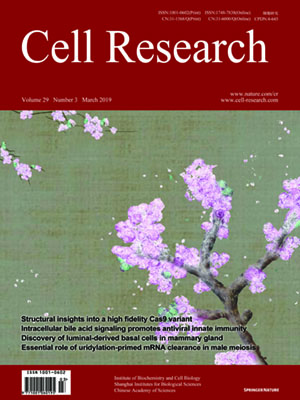
Advanced Search
Submit Manuscript
Advanced Search
Submit Manuscript
Volume 29, No 3, Mar 2019
ISSN: 1001-0602
EISSN: 1748-7838 2018
impact factor 17.848*
(Clarivate Analytics, 2019)
Volume 29 Issue 3, March 2019: 177-178
Jing Wang 1,2, Richard A. Flavel l 2,3,4 and Hua-Bing Li 1,2
1Shanghai Institute of Immunology, Key Laboratory of Cell Differentiation and Apoptosis of Ministry of Education of China, Shanghai Jiao Tong University School of Medicine,200025 Shanghai, China; 2Yale Center for ImmunoMetabolism, Shanghai Jiao Tong University School of Medicine, 200025 Shanghai, China; 3Department of Immunobiology, Yale University School of Medicine, New Haven, CT 06520-8055, USA and 4Howard Hughes Medical Institute, Yale University, New Haven, CT 06520-8055, USA
https://doi.org/10.1038/s41422-019-0148-5